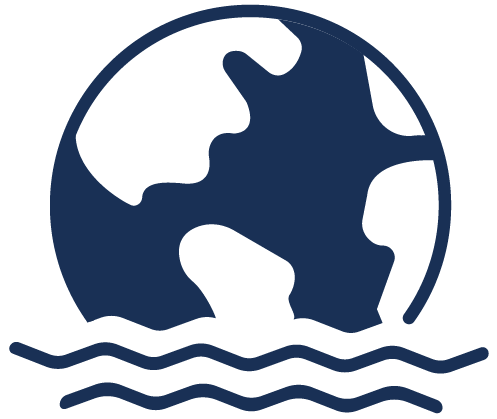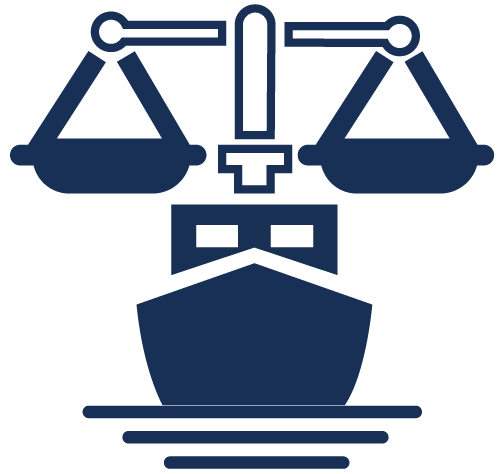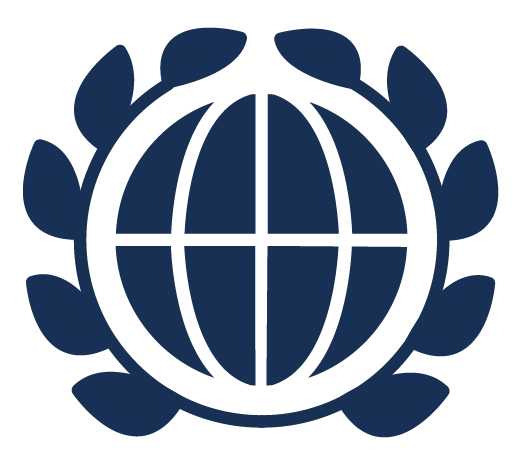The Center for Ocean Policy and Economics - COPE°
What is COPE°?
The Center for Ocean Policy and Economics (COPE°) is a pioneering institution nestled within the Northeast Maritime Institute – College of Maritime Science. With a vast number of ocean-related challenges, some of which are often referred to as “wicked problems” due to their complexity and interdependent nature, there was a pressing need for a dedicated body to address these issues in a holistic manner. COPE° emerged as the beacon of hope in this regard.
The establishment of COPE° is not a sudden epiphany but a meticulous progression of years of rigorous research. The Center’s foundation lies in the countless conversations held with some of the most distinguished experts in the maritime and ocean-related domains. These dialogues not only highlighted the intricacies of the oceanic challenges but also underscored the necessity of interdisciplinary collaboration to pave the way for sustainable solutions.
At its core, COPE° functions as more than just a research institution; it serves as a facilitator. Recognizing the need to bridge the gap between various sectors, the Center plays a pivotal role in integrating perspectives from academia, the corporate world, non-governmental organizations, and governmental bodies. Such a collaborative approach ensures that policies and economic initiatives are not formulated in isolation but are a reflection of collective expertise and vision.
In essence, COPE° is not just an academic institution or a research center. It stands as a consortium – a meeting ground where diverse minds come together with a shared purpose – to devise impactful, practical, and far-reaching solutions for the maritime and ocean challenges of today and tomorrow. Through its initiatives, COPE° aspires to reshape the narrative surrounding ocean policy and economic development, ensuring that our oceans remain a sustainable and thriving asset for generations to come.
Mission Statement
The Center for Ocean Policy and Economics shall be held to an enduring mission: to make pivotal policy, intellectual, ethical, moral and financial investments for the commercialization of breakthrough best practices in maritime commerce, ocean science and technologies for the implementation of sound ocean policy and responsible exploration and sustainable ocean ecology that focuses on the balancing of mitigating and reversing negative climate trends, creation of environmentally sustainable jobs and ocean regulatory regimes while ensuring that people can live, work and integrate on, in and near oceans, estuaries and rivers through sustainable practices.
Where are the "Wicked Problems?"
COPE° Working Groups are dedicated to proactively confronting and navigating the intricate “wicked problems” that arise in the vast domain of our oceans. The groups are made up of dedicated volunteers from all backgrounds: private individuals, academics, NGOs, private and public companies, governmental agencies, and more.
By promoting collaboration and shared vision, these groups are fostering solutions across a spectrum of essential areas:
Maritime Trade & Commerce
COPE° strives to streamline maritime operations, ensuring that trade is conducted in a manner that is both economically viable and environmentally responsible. By optimizing routes, promoting fair trade practices, and leveraging technology, they aim to reshape maritime commerce for the benefit of all stakeholders.
Ocean Ecology
Recognizing the delicate balance of marine ecosystems, COPE° works diligently to study, protect, and restore the ocean’s biodiversity. By collaborating with marine biologists, conservationists, and local communities, they aim to design sustainable fishing practices, combat pollution, and protect endangered marine species.
Maritime and Ocean Innovation & Technology
COPE° champions the integration of cutting-edge technology and innovative methodologies in maritime activities. From advanced navigation systems to deep-sea exploration technologies, COPE° drives initiatives that harness the power of innovation to protect and harness the potential of our oceans.
Diplomacy & Foreign Affairs
Understanding the shared responsibility of ocean stewardship, COPE° facilitates dialogue and cooperation among nations and peoples. By fostering diplomatic and other international relationships, COPE° seeks to create a unified approach to maritime governance, dispute resolution, and shared oceanic resources.
Energy & Sustainability
COPE° is at the forefront of promoting sustainable energy sources and practices within maritime activities. By advocating for renewable marine energy and efficient ship propulsion systems, COPE° aims to reduce the carbon footprint of maritime operations and to champion sustainability.
Maritime Economic Development
COPE° actively supports the growth and diversification of ocean-based economies. By partnering with communities, governments, and industry, COPE° helps nurture sectors such as eco-tourism, sustainable fishing, and marine biotechnology.
With a forward-looking approach, including solving “Wicked Problems,” COPE° is not just identifying problems but is actively paving the way for solutions that promise a harmonious and sustainable relationship with our oceans.
The COPE° Mindset
Connection, Communication, and Sharing
Our world thrives on diversity. Its strength lies in understanding and embracing different perspectives. COPE° recognizes the power of collective insight and champions a community where every voice, irrespective of its origin, finds a listening ear. By transcending traditional boundaries and advocating for inclusivity, COPE° is shaping an environment where every stakeholder, regardless of identity, background, or belief, is welcomed and valued.
The COPE° Mindset
COPE°'s Pledge:
Open Doors: COPE° maintains an unwavering commitment to welcoming ALL stakeholders. Our doors are open to anyone keen to contribute, be they from the grassroots or the boardroom.
Safe Spaces: We prioritize psychological safety, nurturing an atmosphere where everyone feels comfortable sharing their views.
Unified Collective: The spirit of COPE° lies in weaving together diverse threads of perspectives, fostering a rich tapestry of shared understanding.
Key Takeaway: Emulating positivity and mutual respect is more than just a value; it's our way of life. We believe that when diverse voices echo in harmony, transformative solutions emerge.
Safety: COPE°'s Commitment to Trust
Trust isn't just a word for us; it's a promise. COPE° dedicates itself to ensuring that every member, regardless of their role, feels secure and valued. We recognize that the bedrock of constructive dialogue is the assurance of safety.
Inherent Goodness:
Human Bond: Deep down, every individual seeks connection. We are hardwired for empathy, desiring to support and uplift one another.
Love and Connection: Positive actions strengthen our ties with the world, fostering an environment of healing and progress.
Preventive Focus:
Addressing potential challenges upfront safeguards the sanctity of our collaborative efforts. Comprehensive safety isn't a goal, but a given. Continuous education ensures that our members are well-equipped to navigate diverse interactions, maintaining a climate of respect and understanding.
Education and Growth: Evolving Together
Knowledge is the beacon that lights our path forward. COPE° champions the idea that everyone deserves the right to learn, grow, and contribute. Our inclusive educational ethos lays the groundwork for deeper understandings, which in turn metamorphoses into collective wisdom.
Liberal Education Insights:
Engagement vs. Expertise: While specialized knowledge is crucial, it shouldn't overshadow holistic understanding. The beauty of education lies in the intricate interplay of diverse insights.
Elevating Civic Engagement: Our aim is not just to inform but to empower. We strive to create proactive citizens, committed to making a positive impact.
Harmonizing Diversity: COPE° challenges traditional pitfalls in education, advocating for an approach that celebrates diversity in thought, culture, and beliefs.
Every individual, with their unique perspective, is a puzzle piece in COPE°'s grand vision. By ensuring that every piece finds its place, we craft a complete and vibrant picture of progress and unity.
Senior Fellows nurture and guide the next generation of leaders within COPE°, including Fellows and Junior Fellows, ensuring that their journey is anchored in wisdom and experience. They play a pivotal role in framing COPE°'s strategic direction, ensuring its endeavors align seamlessly with its core mission and overarching vision. Additionally, they act as the face of COPE° in high-profile settings, collaborating with global stakeholders, and representing the organization's interests and values at top-tier engagements. Understanding the importance of a sustainable, entrepreneurial environment, COPE° ensures that Senior Fellows have ample economic opportunities to both contribute to the organization and cultivate a prosperous personal lifestyle. With their vast experience, Senior Fellows are often sought after for specialized consultancy roles within and outside COPE°. This opens avenues for personal revenue streams while addressing critical issues. Their stature and expertise place them in a prime position to attract research grants, funding, and sponsorships for projects that align with COPE°'s mission and their personal interests. COPE°'s vast network offers Senior Fellows opportunities to forge lucrative partnerships and collaborations, enabling them to launch or invest in startups, ventures, or initiatives geared towards solving wicked problems. They can capitalize on speaking engagements, workshops, and seminars, sharing their knowledge with a wider audience, and in return, receive honoraria or fees. Senior Fellows are encouraged to publish their research, insights, and solutions. Through publications, book deals, or even patenting innovative solutions, they can generate additional income. By developing courses, programs, for Northeast Maritime Institute’s NEMO° online courses based on their expertise, they can contribute to education while generating a revenue stream.
Through these avenues, COPE° ensures that its Senior Fellows not only contribute to resolving the world's wicked problems but also thrive economically, striking a balance between societal contribution and personal success. This harmonious blend of purpose and prosperity ensures a committed, motivated, and fruitful association, enhancing the collective impact of COPE°.
Why the Ocean?
The vast expanse of our oceans, with their profound depths and sprawling reaches, epitomizes a powerful truth: the ocean knows no borders. This reality underscores the interconnectedness of our world and binds us in shared responsibility and destiny.
The planet’s waters are an essential component of our existence. From the macro perspective, oceans dictate global weather patterns, shaping climates and influencing environmental phenomena. On a micro scale, they enable the tiniest of organisms to thrive, driving the intricate web of life. This interplay of large and small illuminates the indispensability of our oceans, emphasizing their critical value that warrants steadfast protection.
Global trade, historically centered around maritime shipping, has been a linchpin of economic growth. Maritime trade has been connected to nearly every kind of human interaction from the most negative (colonization, the slave trade, etc.) to the most positive (human development, wellbeing, enjoyment, knowledge preservation and propagation, peacemaking, spreading prosperity, etc.). Maritime pathways, largely unhindered by territorial borders, were central in sculpting our modern societies. An intricate maritime network seamlessly traverses national boundaries and underscores global progress and key elements of our shared future.
The introduction of containerized shipping around 1956 heralded a new era in global interconnectivity. It magnified the opportunities for collective growth and wealth dissemination but also, paradoxically, paved the way for exploitation and unequal resource allocation.
Crucially, the structures underpinning our maritime-driven global supply chains are not fixed entities. They are not dictated by immutable natural laws but are instead manifestations of deliberate human choices. The phrase “The ocean knows no borders” serves as a poignant reminder of this. It emphasizes that our actions in one part of the world can resonate around the planet, affecting distant ecosystems and communities. Thus, our collective choices – whether as individuals, leaders, or consumers – shape these structures. The manner in which we govern, influence, and adapt our maritime and global frameworks is a testament to our collective vision and values.
In navigating the future, we must anchor our endeavors in the paramount principle of “The ocean knows no borders,” ensuring that sustainability, mutual respect, and global unity are at the heart of all initiatives.







